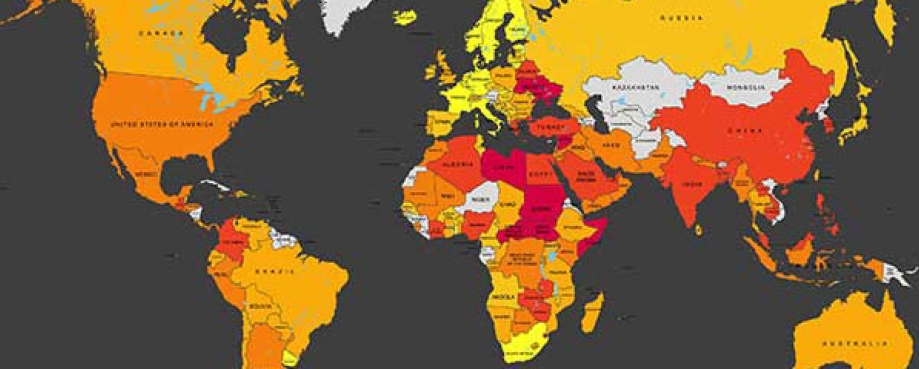
Stirling Smith has been looking at a new list of countries with dodgy records in workers’ rights.
Last year I posted a blog about the new ETI guidance on Freedom of Association, and mentioned that training on the topic was in the pipeline. I also promised that delegates would not be asked to sing old Meat Loaf songs.
Well, we kept the promise - we tried out the new course over the summer; no Meatloaf numbers were sung. However, I did warble a few lines from The Mikado, Gilbert and Sullivan’s evergreen opera, where one of the most popular songs is Ko-Ko’s “I’ve Got a Little List”. The words are frequently rewritten to include topical references.
The point being that there are plenty of countries where somebody is singing a version that goes:
The bothersome trade unionist, I’ve got her on the list!
The one who asks for equal pay and human rights,
She never would be missed, she never would be missed!
Everybody seems to like lists. TV schedules often have the 'fifty best pop groups' and 'Top ten tips' have become staples for blog posts.
But one list you won't be hearing about, but you should read, is the ITUC Global Rights Index, which provides a first attempt to score countries scientifically according to their respect for the right to form and join trade unions and engage in collective bargaining - an essential part of the ETI Base Code, the bit some people are embarrassed about.
The ITUC, or International Trade Union Confederation, is best described as an organisation that brings together trade union national centres. A national centre being something like the UK's TUC. We do like our jargon in the trade union world.
The list takes all the many types of violations of trade union rights recognised by the International Labour Organisation’s supervisory bodies, and uses them as indicators. There are 97 of them. Then the ITUC has checked its database of recorded violations against the indicators. Each violation gets one point. Countries then get coded according to their "score". The ITUC has gone to a lot of trouble to make the proceeds as scientific as possible, using the science of leximetrics.
No, I had not heard of it either. It is a way of ranking the strength or weaknesses of laws, by giving a numerical value to each type of law in a particular field. This results in a score which can compare different legal systems.
Now at this point, you may feel like the anonymous character in Shakespeare’s play who exclaims “let's kill all the lawyers!"
But we do need labour law to protect workers, just like we need consumer law to protect consumers, and company laws to protect investors. That’s fair, surely?
What the ITUC exercise does is to show how far labour law fails to protect workers, and how far it falls short of the internationally accepted framework of protection. The list is far from perfect; there are some very odd results. But it is the first attempt to develop an objective list of how countries fail to honour what is a basic human right - mentioned way back in the Universal Declaration of Human Rights.
Countries are graded 1 to 5, with 1 being a country where trade union rights are respected, and 5 being - well a country where being a trade unionist is a bit tough. There's a special category of 5+, countries where there has been a breakdown in the rule of law, due to internal conflict or military occupation.
Well of course the first country you want to look up is the UK - it gets a score of 3. The USA, land of the free, gets a 4. Not very good really.
We used the list last month during the pilot session to test out the new course. It is an exercise I call “speed dating”. Companies look at the list and see where their suppliers are.
Oh dear. Bangladesh, Cambodia, China, India, Malaysia, Turkey - important supplying countries - they all score a 5.
Apart from my singing, everybody had a good time testing the new course, and so we are ready to roll it out for real - check here for dates.
No Meatloaf. Gilbert and Sullivan. Leximetrics. Speed dating. Who says trade unionism is boring? How can you miss it?
